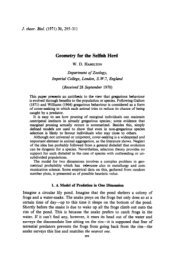Chapter 6 - Ethical Culture Fieldston School
Chapter 6 - Ethical Culture Fieldston School
Chapter 6 - Ethical Culture Fieldston School
Create successful ePaper yourself
Turn your PDF publications into a flip-book with our unique Google optimized e-Paper software.
“Mr. Sinatra Gets Rejected”<br />
quantities, in a civilization that is so busy making things and selling<br />
things as ours. Whatever else you may say of the adoration of The<br />
Voice, it is a strictly non‐commercial enterprise, a selfless idolatry<br />
which pays its 75 cents at the box office and asks in return only the<br />
privilege of being allowed to ruin its vocal chords. Perhaps Frankie<br />
is more important a symbol than most of us are aware. 22<br />
In retrospect, of course, most of us are aware that Frankie was an<br />
important symbol, but we’re no more able to fix exactly what he was a symbol of<br />
than Bliven was. As he suggests, it has something to do with the longing<br />
engendered by the very promise of American life, the incalculable price dreams<br />
exact by the mere fact of their (often ill‐formed) existence. “It was the war years,<br />
and there was a great loneliness,” Sinatra has said in explanation of his own<br />
appeal,” but while that sounds poetic and true in as far as it goes, it’s too clichéd<br />
and incomplete to really be a satisfying answer. Yes, as Sinatra explained, he<br />
surely was “the boy in every corner drugstore, the boy who’d gone off to war.” 23<br />
But even so, why did that loneliness persist for so many even after the boys had<br />
come home (hadn’t it long preceded their departure)? And even if that loneliness<br />
had come and gone, why was Sinatra the voice of it?<br />
My own guess is that Sinatra had an unusually clear understanding of this<br />
loneliness, which has something to do with the sense of isolation that results<br />
when you have high hopes in a land where you’re is told anything is possible,<br />
and where, no matter what you do, the perception of plenty always seems most<br />
vividly in view somewhere else. Sinatra was literally the voice of these hopes, and<br />
Times, October 13, 1974, sec. 2, p. 12. (Reader, p. 48).<br />
22 Bruce Bliven, “The Voice and the Kids,” The New Republic, 6 November 1944, p. 593.<br />
23 Quoted in Taraborelli, p. 55.<br />
American History for Cynical Beginners<br />
21
















